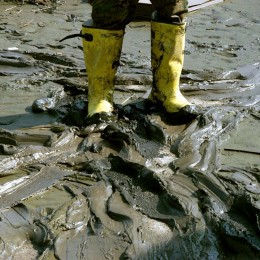Throwback: Before Sanitation

We debunked the new EWG report yesterday on how chemicals are found in our bodies. It relied on scare tactics and shoddy science. But it also appealed to an implicit conviction: that manmade chemicals are everywhere and they’re bad for us.
Of course chemicals are everywhere. But this isn’t inherently bad. In fact, it’s often a good thing, and denying that despite the evidence can be dangerous.
With so many fearmongerers broadcasting distrust, we decided it’s time to remind people of the progress made through the discoveries of modern science. Last week we covered GMOs. This week’s focus is the greatest medical advance in 150 years: Sanitation.
We often take sanitation for granted. But that’s because we don’t know what life was like before it.
One way to make up for our lack of experience is looking at opinions from the early 20th century. These are helpful because they come from people who lived life before and after improvements in sanitation. Writing during this period, President Calvin Coolidge remarked “wherever we look, the work of the chemist has raised the level of our civilization.” Now activists act as if chemistry is leading to its collapse.
To be fair, the “level of civilization” prior to sanitation was, well, let’s just say low. Take 19th Century London for example, where:
- 300,000 horses were dropping 1,000 tons of dung every day. As historian Lee Jackson put it in an interview with NPR, London’s roads were “essentially composed of horse dung.”
- The Thames river “was thick with human sewage.”
- Houses had cesspools in basements. “This sort of stench coming into the house,” writes Jackson, was “actually one of the great driving forces of sanitary reform.”
Sanitation was improved by chemists working on different problems in various disciplines.
- Revolutions in water treatment—which involves chemical processes—saved lives, as chemists discovered cholera was spread through water, and could be prevented with sand filters and chlorination.
- Indoor plumbing combined with chemical cleaning supplies dramatically improved sanitary conditions at home and in public.
The average American lifespan today (2014) is 78 years, while in 1900 it was just 46 years. One of the driving forces of this is clear: sanitation. And knowing how dirty life in the 19th century was, it’s plain to see that chemistry helped make sanitation work.





